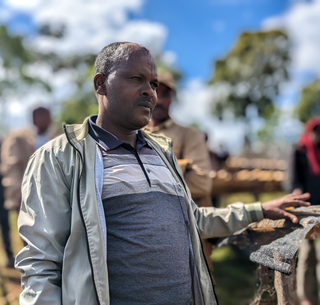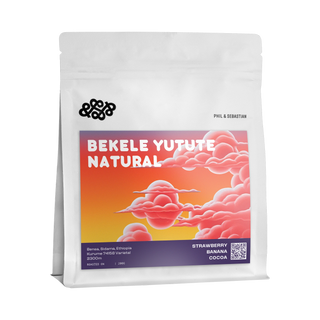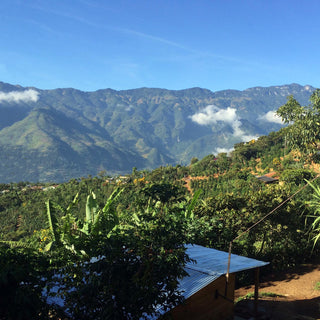- Filter
Bekele Yutute Natural
STRAWBERRY | BANANA | COCOA
Coffees from the small region of Bensa, at a whopping 2300 meters, are winning almost every coffee competition in Ethiopia, and for good reason. They are complex and elegant, and as a natural process: bursting with fruit. Bekele Yutute is an exemplary example. Read the full story below.
This omniroast has been optimized for filter, but a well trained barista will definitely be able to pull tasty shots with it.
Adding product to your cart

DOES BENSA HAVE THE BEST COFFEE IN ETHIOPIA?
It’s no accident that coffees from the small region of Bensa took the top two spots in the Cup of Excellence last year (2024). Bensa is blessed with the astounding altitude of 2300m. Seriously, this is some of the highest coffee grown in world. All things equal, higher grown coffee is often better coffee.
This coffee is part of a program to work directly with small coffee exporters. In 2017, Ethiopia changed its regulations to allow washing station owners to export their own coffee. This was a really big deal because it’s incredibly difficult to make reasonable money from just growing coffee, and so any further way to add value to the coffee through processing and exporting is a rare opportunity for upward financial mobility. The organization making it possible for these small exporters to access the market is called Coqua. I had the privilege of visiting them last season (2024), and their founders: Ansha and Moata are amazing. They’re really making it happen. They work incredibly hard to navigate the labyrinth of regulations to consolidate all these small exporter’s coffee. I’ve been traveling to Ethiopia for 12 years, and I thought I’d seen it all, but these two inspire me. They remind me that there are those in Ethiopia really looking out of the little guy, and working to lift them up.
Now let’s talk about the coffee! Bekele Yutute owns the drying station, and his nephew, Samuel, manages it. They call it Kokose, after the name of the local Kebele (amharic for neighborhood). They supply some coffee from their own farm (also called Kokose) and buy from outgrowers around them (i.e. neighbors). In total they only produce a tiny amount of coffee: 48 bags, we bought about half of that: 25 bags. We rarely buy naturals, but their processing is impeccable. It’s a clean, intense and fruity coffee. We hope you love it as much as we do!
– Phil


